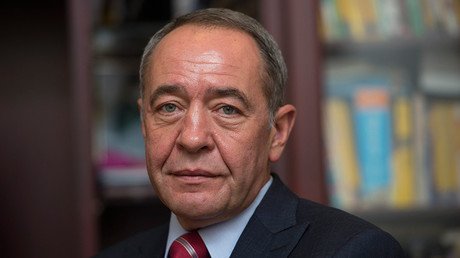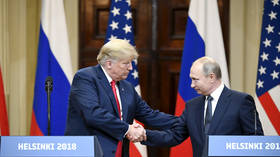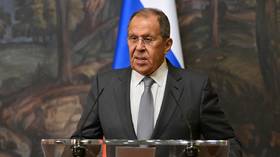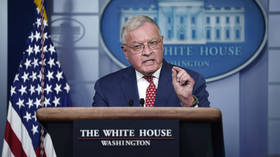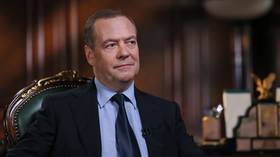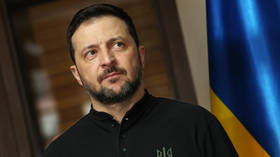US State Dept refuses to confirm Lesin death was violent as speculation swirls
Washington police have provided Moscow with data on the probe into former Press Minister Mikhail Lesin’s death in a DC hotel, the US State Department has said. A spokesman wouldn’t comment if the secretive investigation was “criminal” amid spiraling conspiracies.
The Metropolitan Police Department has submitted data on the investigation to the Russian government, State Department spokesman John Kirby said on Friday, responding a question by RT’s Gayane Chichakyan.
Kirby declined to explain why it took almost four months to transfer the crucial evidence, or speak about the nature of the probe, which he first referred to as a “criminal investigation.”
However, when asked by AP’s Matt Lee to confirm if Lesin had been killed, the spokesman retracted his statement, saying that he used the word “criminal” inappropriately. “The investigation is ongoing and I’m not going to get ahead of it,” Kirby stressed.
A direct communication channel between DC police and the Russian authorities has been established to facilitate the exchange, according to Kirby.
Earlier, the Russian Foreign Ministry had said it had not received any substantive information on the course of the investigation four months after it had been launched.
Meanwhile, White House press secretary Josh Earnest said at a Friday briefing that he believes the FBI might have been involved in the investigation, without going into details, TASS reported.
Prosecutor General of Russia Yury Chaika forwarded a formal request to his US counterpart Loretta Lynch to provide documents that could help determine the causes and circumstances of Lesin’s death, Saak Karapetyan, the chief of the international cooperation department of the Prosecutor General’s Office, told TASS. The request falls within the scope of the treaty between the US and Russia on mutual legal assistance in criminal matters, as the cause of Lesin’s death has not been established by now and the parties concerned have not been informed, added Karapetyan.
Russia is yet to receive enough information on the circumstances of Lesin’s death, Russian Ambassador to the US Sergey Kislyak told RIA Novosti.
"We have been repeatedly appealing to the US authorities, asking for all the detailed information [on Lesin’s death]. But, so far, we have not received it," Kislyak said.
READ MORE: Washington refuses to reveal details of cooperation with Dutch investigators over MH-17
The uncertainty over the cause of Lesin’s death, which the latest forensic data blamed on “blunt force injuries” to the head, has served as a breeding ground for conspiracy theories, with some outlets going as far as calling him an “FBI informant” who might be hidden away “as part of a witness protection program.” British tabloid the Daily Mail made a somewhat far-fetched claim by comparing Lesin’s death to that of Aleksandr Litvinenko - the former FSB officer who many in the West believe was poisoned by radioactive polonium on the Kremlin’s orders.
William Jones, the Washington bureau chief for the Executive Intelligence Review, told RT that Western media would try to give the public a “false lead” by exploiting Lesin’s high-profile case against the Russian government and President Vladimir Putin. “This is their favorite target, this is the obvious thing that they would do,” he added.
“There is a demonization of Russia at this point, there’s a demonization of Putin by the American media, so you can never believe anything that they say with regard to that, they’re not truth seekers. They’re simply touting a line, which has now become the shibboleth of the American political establishment, and the media is meekly following along,” Jones stressed.
READ MORE: Media tycoon & former Russian press minister Lesin dies from heart attack at 57
Lesin died at the age of 57 in his suite in DC’s Dupont Hotel on November 5, 2015. During his career as a statesman, he held the offices of Russian press minister and presidential media adviser. After he left public service, Lesin was appointed head of Gazprom-Media, remaining in charge of the Russian media giant from 2013 to 2015. He is also considered to be one of the masterminds behind the idea to create RT as an English-language television network to convey Russian positions to an international audience.
